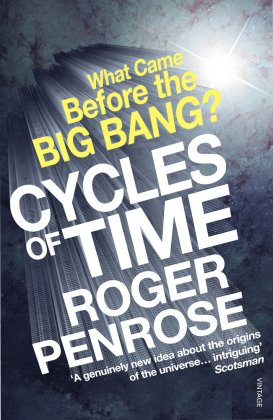
Cycles of Time - An Extraordinary New View of the Universe. What Came Before the Big Bang
| Verlag | Random House UK |
| Auflage | 2011 |
| Seiten | 304 |
| Format | 19,8 cm |
| B-format paperback | |
| Gewicht | 290 g |
| Artikeltyp | Englisches Buch |
| ISBN-10 | 0099505940 |
| EAN | 9780099505945 |
| Bestell-Nr | 09950594EA |
Als einer der großen anerkannten Naturwissenschaftler unserer Zeit präsentiert der Mathematiker und Physiker Penrose hier einen völlig neuen Ansatz zur Entstehung - und dem Ende - unseres Universums. Auf ausgefallene, doch absolut logische Weise, beantwortet er die Frage, wie das Ende unseres sich beschleunigt ausweitenden Weltalls der Anfang eines neuen Universums sein kann - ein neuer Urknall.
In his first book since the bestselling The Road to Reality, one of our most distinguished scientists offers a radical new theory of the origin, and ultimate end, of the Universe.
__WINNER OF THE 2020 NOBEL PRIZE IN PHYSICS__
What came before the Big Bang?
How did the universe begin and must it inevitably end?
In this remarkable book Roger Penrose brilliantly illuminates some of the deepest mysteries of the universe.
Cycles of Time contains a penetrating analysis of the second law of thermodynamics - according to which the 'randomness' of our world is continually increasing - and a thorough examination of the light-cone geometry of space-time. It combines these two central themes to show how the expected ultimate fate of our accelerating, expanding universe can actually be reinterpreted as the 'big bang' of a new one.
Presenting various standard and non-standard cosmological models, discussing black holes in depth as well as taking in the role of the cosmic microwave background along the way, Roger Penrose argues that the Big Bang was not actually the beginning of everything - nor will it signal the end.
< br> 'Science needs more people like Penrose, willing and able to point out the flaws in fashionable models from a position of authority, and to signpost alternative roads to follow' Independent
Rezension:
Penrose is truly one of the world's leading mathematical physicists Scotland on Sunday
